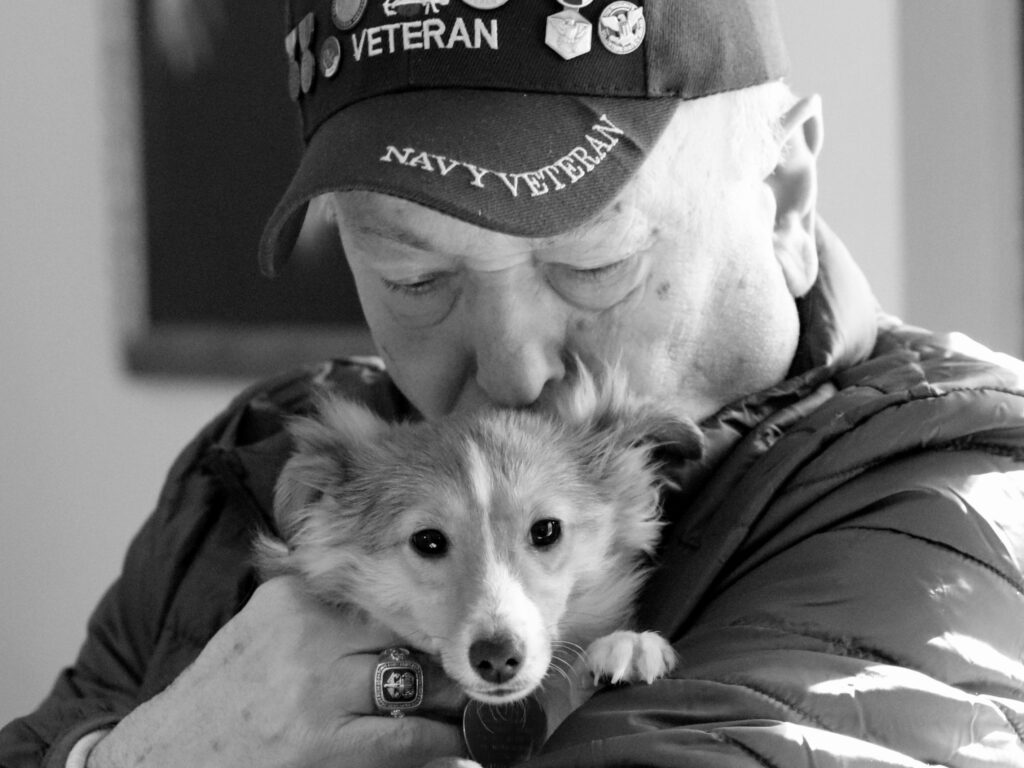
Pet therapy, also known as animal-assisted therapy, is a therapeutic intervention that involves animals as a form of treatment. This approach leverages the bond between humans and animals to enhance physical, emotional, and social well-being.
For veterans, pet therapy can be particularly beneficial as it provides companionship, comfort, and a sense of purpose that can help in managing various mental and physical health issues.
The Concept of Pet Therapy
Pet therapy involves trained animals, typically dogs, but can also include cats, horses, and even birds, to interact with individuals under the guidance of a professional therapist.
The goal is to improve the patient’s social, emotional, or cognitive functioning. In the context of veterans, pet therapy can address a range of issues, including post-traumatic stress disorder (PTSD), depression, anxiety, and physical disabilities resulting from combat injuries.
The Benefits of Pet Therapy for Veterans
Emotional Support: Veterans often face emotional challenges when adjusting to civilian life. The unconditional love and companionship provided by animals can alleviate feelings of loneliness, anxiety, and depression. Interacting with a pet can trigger the release of endorphins, which promote a sense of well-being.
Read more: 9 Mental Health Benefits of Having an Emotional Support Animal
PTSD Management: Many veterans suffer from PTSD, a condition characterized by severe anxiety, flashbacks, and emotional numbness. Animals, particularly dogs, can be trained to recognize signs of distress and provide comfort. The presence of a pet can ground veterans in the present moment, reducing the intensity of PTSD symptoms.
Social Interaction: Pet therapy can enhance social interactions. Veterans with service dogs, for instance, often find that their dogs act as social icebreakers, facilitating conversations and connections with others. This can help combat social isolation, a common issue among veterans.
Physical Rehabilitation: For veterans with physical injuries, pet therapy can be an integral part of rehabilitation. Activities like walking, grooming, or playing with a pet can improve motor skills, coordination, and physical fitness.
Additionally, the motivation to care for a pet can encourage veterans to adhere to their rehabilitation routines.

Sense of Purpose: Caring for a pet can give veterans a renewed sense of purpose and responsibility. The routine of feeding, exercising, and looking after a pet can provide structure to their day, helping them develop a sense of stability and normalcy.
Read more: 11 Ways You Can Exercise With Your Pet
Types of Pet Therapy
Therapeutic Visitation Animals: These are pets brought to hospitals, rehabilitation centers, or nursing homes to visit patients. The goal is to provide comfort and companionship.
Animal-Assisted Therapy (AAT): This is a more structured form of therapy where animals are incorporated into a patient’s treatment plan to help achieve specific therapeutic goals. AAT is usually conducted by licensed therapists.
Service Animals: These are specially trained animals that assist individuals with disabilities in their daily activities. For veterans, service dogs can be trained to perform tasks like fetching items, providing balance support, or interrupting anxiety attacks.
Success Stories
There are numerous success stories highlighting the impact of pet therapy on veterans. Organizations like Pets for Vets and the Wounded Warrior Project have facilitated connections between veterans and therapy animals, leading to significant improvements in the veterans’ quality of life.
Many veterans report that their therapy pets have helped them overcome severe depression, reduce reliance on medication, and re-engage with their communities.
Conclusion
Pet therapy is a powerful tool in the arsenal of treatments available to veterans. The unique bond between humans and animals provides a myriad of emotional, psychological, and physical benefits that can significantly improve the lives of those who have served their country.
As more research supports the efficacy of pet therapy, its integration into veteran care programs continues to grow, offering hope and healing to those in need.
Do you own an assistance animal? Register your pet today.
The Service Animal Registry of California invites you to have your assistance animal registered in order to designate its status. We also encourage you to take our online classes so you can be fully aware of your rights and gain more knowledge about your support animal.
Finally, we present to you our book entitled, “ASSISTANCE ANIMAL LAWS: LEARN YOUR RIGHTS REGARDING SERVICE ANIMALS, EMOTIONAL SUPPORT ANIMALS, THERAPY PETS, AND OTHER DOGS, CATS, AND ASSISTANCE ANIMALS” to provide you with a complete education on assistance animals.
Purchase your copy of the book by clicking the image below.

